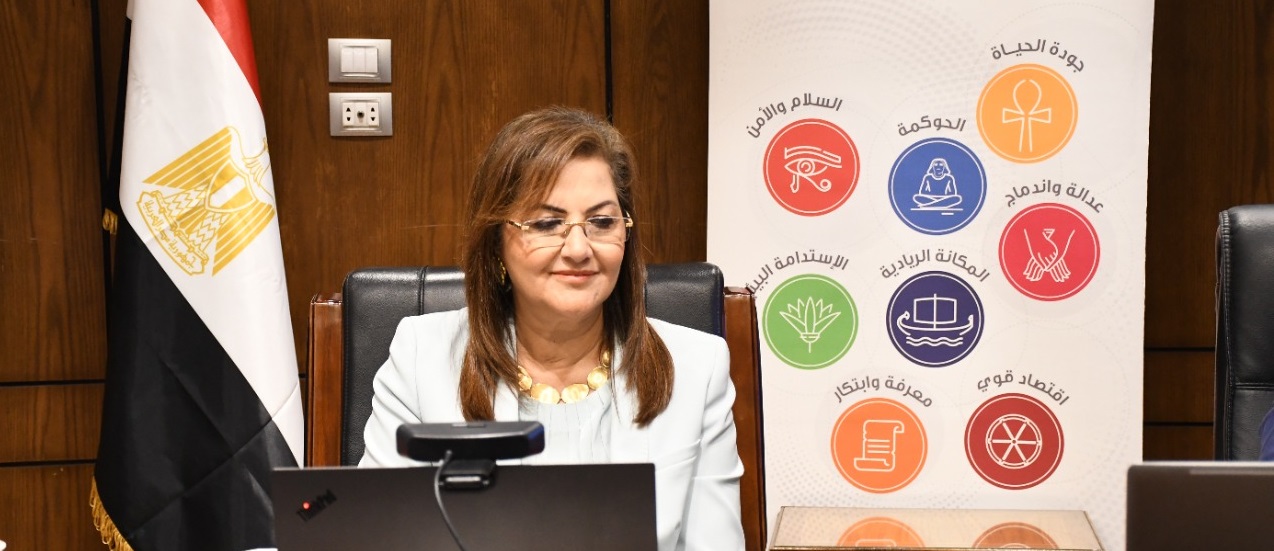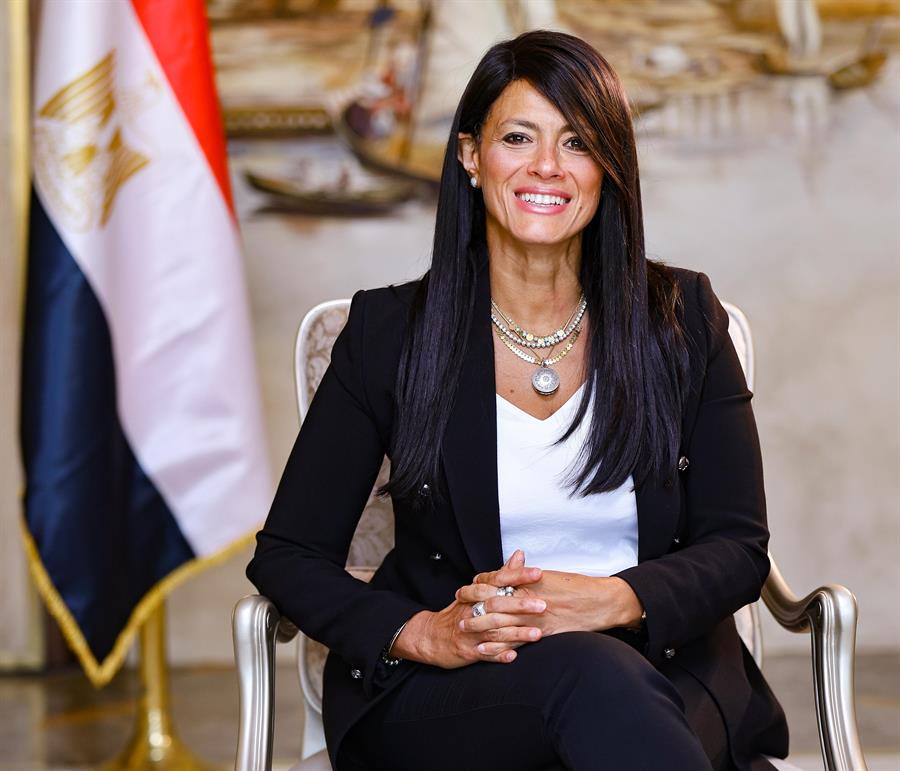Minister of Planning and Economic Development participates in UN HLPF side event

14 July 2021
Dr. Hala El-Said, Minister of Planning and Economic Development, participated recently in the United Nations High-level Political Forum on Sustainable Development event: The role of business and the financial sector in financing a sustainable and resilient recovery from COVID-19.
It was held on the sidelines of the United Nations High-Level Political Forum (HLPF) on Sustainable Development.
During her speech, Dr. Hala El-Said stressed the importance of intensifying efforts towards achieving sustainable development goals and addressing the global financing challenge, which is considered one of the most important challenges hindering the implementation of the 2030 Agenda.
El-Said noted the importance of a comprehensive partnership between all relevant stakeholders, including the private sector, civil society, and development partners, at the local and international levels.
El-Said pointed out that the Egyptian government has implemented many legislative and institutional reforms within the framework of the first phase of the National Economic and Social Reform Program (NESRP), as the program aimed to achieve macro-level stability and comprehensive and sustainable growth.
El-Said explained that the success of the economic reform program contributed to providing sufficient financial space to launch a comprehensive stimulus package to reduce the burden on the sectors affected during the epidemic. This ensures a balance between preserving the health of citizens and advancing economic activity.
As a result of the reform program and despite the pandemic, Egypt was able to achieve positive economic growth of 3.6% in 2019/20, El-Said added.
El-Said stressed that the program aims to diversify the production structure in the Egyptian economy and increase its flexibility, develop the role of the private sector, pay attention to technical education, encourage inclusive growth and create decent and productive job opportunities.
El-Said indicated that within the framework of the state's endeavor to launch innovative methods of financing development and strengthening partnership with the private sector, The Sovereign Fund of Egypt (TSFE) was established in 2018 within the framework of “Egypt Vision 2030”.
TSFE aims to become an economic entity that is capable through a partnership with local and international companies and institutions, to create investment opportunities in promising sectors, such as manufacturing industries, especially chemical and petrochemical industries, engineering, pharmaceuticals, and food products.
El-Said added that there is another important initiative under the umbrella of Goal 17: ---Revitalize the global partnership for sustainable development--- which is the preparation of the first national report of its kind on financing for development under the auspices of the Egyptian government.
This report will be available before the end of 2021, and it addresses the full scope of financing for development and presents specific key policy interventions.
The Ministry of Planning will also launch a joint project with the United Nations Fund for Sustainable Development Goals, to develop an integrated national financing framework to estimate the cost of implementing the sustainable development goals at the national level.
El-Said stressed that the Egyptian government gives great attention to small, medium, and micro enterprises, as they play a key role in promoting innovation and stimulating growth.
El-Said referred to the government's efforts to integrate the informal sector by providing incentives, some of which are financial and technical, to encourage the integration of the informal sector under the umbrella of the formal system, in addition to financial support and tax exemptions for a certain period, and incentives related to reconciling the status of small enterprises operating in the informal sector.
El-Said pointed out that the Egyptian government has issued a new law that provides financial and non-financial incentives for micro, small and medium companies and emerging entrepreneurs to provide credit facilities and training programs.
During her speech, El-Said touched on the implementation of many infrastructure projects, intending to reduce emissions, such as the new transport system, electric and high-speed trains projects, and new and renewable energy projects.









